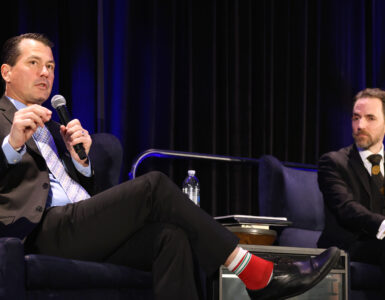For months now, U.S. citizens, economists, government officials, and more have all been asking the same question: are we facing a looming recession? While the answer to that question is foggy to even the most talented economists, many believe that Arizona is well-positioned to take on an economic downturn if one does occur.
Last week, the Finance Advisory Committee met to discuss the current and future economic state of Arizona. The Joint Legislative Budget Committee (JLBC) first pointed out that according to a Wall Street Journal survey of more than 60 economists, 53 percent of them believe that the United States will face a recession by the end of 2020.
Although recessions are inescapable, state economies can take various steps to prepare for them. The JLBC highlights that Arizona is doing just that; Arizona currently ranks third in the nation in economic momentum. Nationally, the state has the sixth-highest personal income growth rate (5.9 percent), the fourth highest population growth rate (1.7 percent), and the third highest employment growth rate (2.7 percent).
JLBC predicts that these rates will decrease over the next three years, but because of the state’s present economic prosperity, a potential downturn won’t significantly impact the state.
“When you see consistency among the economic indicators, you’re not going to see everything fall off a cliff suddenly,” economist Jim Rounds said. “You might see a slow in GDP and then a slow in job growth, but it will happen over time. Some of the indicators slow and there will be some inconsistencies, and then you’re going to have a downturn. But because we’re having consistent growth right now, it looks like we’re not going to have a downturn for at least two years.”
In fact, Rounds believes that following a potential recession, Arizona will have its best expansion ever.
“Arizona is going to perform much better than the U.S. because our fundamentals are much better than what they used to be,” he said. “I think the next expansion is where we really take off. We’re creating even more high-wage jobs and very high-quality businesses that bring in thousands of employees and help us pace our infrastructures. I’m very bullish on the future, but there is going to be a hiccup.”
Nevertheless, Rounds emphasizes the importance of planning for a possible recession now rather than waiting until it devastates the U.S. and state economies. By saving money now, the state will perform much better in the future.
“You’re going to need well in excess of a billion dollars to get through a downturn. I’m in support of the governor setting aside as much money as possible,” Rounds said.
Gov. Doug Ducey at the outset of the legislative session called for bringing the balance of the state’s so-called Rainy Day Fund to $1 billion, which would require a change to existing law that limits the percentage of the state’s general fund revenue that can be diverted into long-term savings.
















Add comment